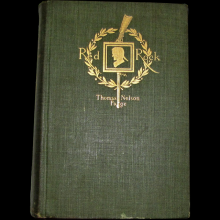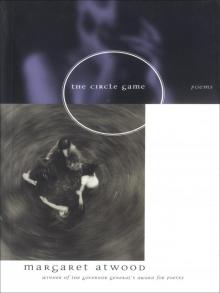Red Rock: A Chronicle of Reconstruction


Author: Thomas Nelson Page
Category: Literature
Published: 2015
Series:
View: 454
Read OnlineThe Region where the Grays and Carys lived lies too far from the centres of modern progress to be laid down on any map that will be accessible. And, as “he who maps an undiscovered country may place what boundaries he will,” it need only be said, that it lies in the South, somewhere in that vague region partly in one of the old Southern States and partly in the yet vaguer land of Memory. It will be spoken of in this story, as Dr. Cary, General Legaie, and the other people who used to live there in old times, spoke of it, in warm affection, as, “the old County,” or, “the Red Rock section,” or just, “My country, sir.” It was a goodly land in those old times—a rolling country, lying at the foot of the blue mountain-spurs, with forests and fields; rich meadows filled with fat cattle; watered by streams, sparkling and bubbling over rocks, or winding under willows and sycamores, to where the hills melted away in the low, alluvial lands, where the sea once washed and still left its memory and its name. The people of that section were the product of a system of which it is the fashion nowadays to have only words of condemnation. Every ass that passes by kicks at the dead lion. It was an Oligarchy, they say, which ruled and lorded it over all but those favored ones who belonged to it. But has one ever known the members of a Democracy to rule so justly? If they shone in prosperity, much more they shone in adversity; if they bore themselves haughtily in their day of triumph, they have borne defeat with splendid fortitude. Their old family seats, with everything else in the world, were lost to them—their dignity became grandeur. Their entire system crumbled and fell about them in ruins—they remained unmoved. They were subjected to the greatest humiliation of modern times: their slaves were put over them—they reconquered their section and preserved the civilization of the Anglo-Saxon. No doubt the phrase “Before the war” is at times somewhat abused. It is just possible that there is a certain Caleb Osbaldistonism in the speech at times. But for those who knew the old County as it was then, and can contrast it with what it has become since, no wonder it seems that even the moonlight was richer and mellower “before the war” than it is now. For one thing, the moonlight as well as the sunlight shines brighter in our youth than in maturer age; and gold and gossamer amid the rose-bowers reflect it better than serge and crêpe amid myrtles and bays. The great thing is not to despond even though the brilliancy be dimmed: in the new glitter one need not necessarily forget the old radiance. Happily, when one of the wise men insists that it shall be forgotten, and that we shall be wise also, like him, it works automatically, and we know that he is one of those who, as has been said, avoiding the land of romance, “have missed the title of fool at the cost of a celestial crown.”
 Circle Game
Circle Game Crank - 01
Crank - 01 The Stories of Eva Luna
The Stories of Eva Luna The Santangelos
The Santangelos Saving Daylight
Saving Daylight The Miss America Family
The Miss America Family Daniel Martin
Daniel Martin Ring O' Roses
Ring O' Roses